Wiegedood has been one of Belgium’s most valued and highly respected black metal outfits that have surfaced the past decade or so. Being part of the renowned “Church of Ra” collective, their personal and distinct take on the genre with the “De doden hebben het goed” trilogy was simply refreshing. In 2018 they wrapped up that trilogy, liberating them from the constrictions that project brought with it. Now that they’re gearing up to release their first full-length outside that realm and a couple of intriguing singles already being released from said album ‘There’s Always Blood at the End of the Road’, we simply had to grab the opportunity to have a chat with vocalist/guitarist Levy about this new chapter for the band…
GRIMM: Nice to meet you, how are you doing?
Pretty good, can’t complain considering the circumstances with COVID but I’m good.
GRIMM: You’ve luckily been able to play some shows in 2021…
Yeah, I wish it would have been more but yeah, I think we played five or six. We got to play Alcatraz festival in Kortrijk, that was the first one and then we did some yeah we played Sonic City in Kortrijk as well, did some show in Germany, Sint-Niklaas,… plus some shows that were transferred from two years ago before the lock down kicked in. That we kind of had to reschedule for that amount of time. So yes, it’s been fun playing but it doesn’t look good and yeah, it’s a bit a bit of a bummer that the situation is taking a wrong turn again.
GRIMM: Yeah, for sure. And really frustrating for everyone that has anything to do with music or culture events and such.
Yeah, everyone’s in the same boat, I guess. (laughs)
GRIMM: Anyway, we’re mostly here to talk about your upcoming new Wiegedood album ‘There’s always blood at the end of the road’. You’ve released already two singles now. How have the reactions been so far?
Pretty good, some people are a bit confused I guess. Because we’ve taken a bit of a different turn and yeah, with the band, it’s not the exact same Wiegedood as when we have with ‘De Doden Hebben Het Goed’ trilogy. And we took the strategic move to release the weirdest song of the album as the first kind of yeah, see what what happens and how people would react to it. But all in all, I think after people were able to digest it a couple of times. We’ve had a lot of good responses and the last three shows we played a couple of new songs as well and the reactions to that have been really good as well. So yeah, very satisfying.
GRIMM: Yeah, sounds promising. And like I said, the first single ‘Nuages’ is indeed one of the, if not the most difficult song on the album. It’s very noticeable on the whole album that you’ve kind of taken a step into to new realms with Wiegedood soundwise.
GRIMM: I read in an old interview that you were saying that you guys were becoming like more and more comfortable with writing for the band. Was that sort of the reason to kind of be more experimental with your music, to like get out of that more comfortable zone or feeling? Or is it just because you’re comfortable that you were able to do this?
I think it’s a bit of a combination of be uncomfortable and yes, if we wrote the first time and it’s the first time the three of us made music together. So you’re bound to be a little less adventurous, I guess. Kind of, you know, draw or paint within the lines and not you know, not do anything too crazy or you just have that yeah, that adventurous spirit isn’t there yet. But but now we’ve been in a band for six years together and we’ve written that trilogy that kind of had a blueprint for every record. It was four songs and you know, it had a self-titled track every time that was more of a mid tempo or a slower song. So we’ve always worked kind of within that blueprint of that first record and now that the trilogy was finished and we were going to do something new, we really wanted to seize the opportunity and really do something new and not just make something that could easily fit into the trilogy. We wanted it to sound different and do some stuff that we wouldn’t have maybe done on the trilogy because the contrast would have been too great or too big. But now we kind of had a blank sheet of paper instead of an Excel sheet we had to fill in you know. (laughs)
GRIMM: Yeah, the whole album really feels like like, since you kind of got out of that trilogy now, that it was liberating for you guys.
Yeah definitely, like I said with the blueprint is one thing but also the we’re more than ever dedicated to make the music and the record that we want to make and a record that we want to listen to. It’s all about being able to do what we want to do from now on.
GRIMM: Yeah, it’s very noticeable on the whole album. I could also see in the comment sections on your first single that it was confusing a lot of people. And while you’re still very much sounding like Wiegedood, on some points you’re totally not sounding like Wiegedood. It’s really interesting and honestly surprised me a bit as well.
Yeah, I’m glad it did. I mean, it’ll always kind of, because it is the three of us, and we also like Wim has a specific drum style and my voice is always going to be what it is. And we’re also always going to, when we start writing we always depart from like a riff based idea or something like that, so everything springs from that but at the same time, yeah, we were a lot more comfortable to to make the audience uncomfortable for a change and to not do too many expected things. And really to go off road with it instead of just you know, going through the motions and doing what would be logical or… there’s enough of that in the world.
GRIMM: And then with the use of those samples and electronics, that uncomfortable feeling is very well accomplished, I must say (laughs)
Yeah, thank you. Thank you. Yeah, the samples is something that we didn’t really use before on the trilogy and it’s mostly accredited to Gilles who was really getting into rebuilding our rehearsal space into a small recording studio. He’s really interested in that stuff and then messing around with the tape recorders. He recorded his solo project, Siem Reap, he recorded the whole album and played the whole album himself. So he’s been really getting into, yeah, working with sound and synths and tape recordings and stuff like that and he had a you have a lot of cool ideas and crazy stuff that he made and… to kind of put on top of the album. It’s like a light filter or something, you’d have to talk to him to really explain it. But there’s there’s some really creepy sounds in everything and some of the samples are very obvious of course, but there’s also a lot of very subtle stuff that you’ll need to listen more than 10 times to hear every detail and I think even with 10 times… still after the 20th time, you’ll still hear something that you couldn’t get out of it the first 20 times. So yeah, that’s credited to Gilles a lot, that aspect of the record.
GRIMM: Yeah, it reminded me of some bands I’ve listened to in the past where it sometimes almost feels like it’s a struggle to get through the whole album, which is what you want of course with artists and releases like that.
Yeah, yeah, that’s what we wanted to… Yeah, exactly. Yeah, you don’t want the whole thing to be a comfortable, positive experience. You kind of want to challenge the listener, like you know, there’s riffs on there that you like, how badly do you want to hear them? Are you are you willing to accept the weird parts in there as well? Or do you just want to hear the catchy you know, four by four beats, you know, and then I like, kind of challenging people into… and you might discover something about yourself, you know, maybe something that you usually wouldn’t listen to or that you usually wouldn’t appreciate. But if it’s a part of something bigger like the whole record, I think you should listen to the whole record. We’re not a single band you know, you don’t listen to two songs or you don’t put it on shuffle or anything if you asked me and you know, if you just go through it and you accept all the parts of it you might, yeah, you might start appreciating something that you didn’t really appreciate when the first time you heard it.
GRIMM: Yeah, for sure. I really liked how some of the songs are totally all over the place and somewhat jazzy. Some of the songs even somehow made me think of almost a black metal version of Archspire.
Yeah (hesitant), they’re a bit more technical than we are.
GRIMM: Yeah, it’s just some of the songs sound faster than anything you’ve ever done before and more technical as well. And that kind of popped in my head while I was listening to it.
Yeah, well definitely every album is faster than the one before and this one is definitely no exception. And of course, yeah, I’m a better guitarist than,… both of us are better or all three of us are better musicians than we were six years ago. And yeah, it shows in the music of course and then you feel more comfortable playing some maybe technical more, technically more challenging stuff. But it doesn’t feel you know, ‘De doden hebben het goed I’ was challenging to us at that time as well technically. And to get the stamina to get through the song and stuff like that, every new record is kind of challenging. If it’s not, we don’t really see the point if it’s not. But yeah, Archspire is a bit maybe more cleaner than what we bring, but I get what you say with the with the technical aspect of it.
GRIMM: Yeah, there were some parts in for instance the opening track ‘FN SCAR 16’ or your first single ‘Nuages’ that were so much all over the place, hyperfast stuff that it somehow made me think of Archspire.
Yeah, that’s interesting. Yeah. It’s funny, I would have never made that connection (laughs)
GRIMM: It’s that kind of music that I don’t typically listen to, but it always intrigues me because it’s so wild and incredibly technical. And I just somehow had that similar feeling with some of the songs on your new album, but then something more to my taste since it’s rooted in black metal.
GRIMM: For this album you also sort of delved into different themes for the lyrics. I read that it’s more focused on the filthiest and most disgusting parts of human nature and society. That made me wonder if some parts have been partially inspired or influenced by the shit that has been going on for the past 2 years now.
Yeah, maybe… we didn’t write a COVID song if that’s what you’re asking (laughs) I don’t want to, you know, like lock the record up into this space in time. But yeah, of course… every lyric and every record is always kind of a testament to what’s going on in my life at the time. So obviously the shit that is still going on, and that was going on when we wrote the record, is definitely mixed up in there. Yeah, mostly it’s observation, so what I see happening around me, it’s very figurative how I write. So I want people to kind of be able in a way to make their own thing out of it, to kind of use universal language a bit. I mean, I know what I want to say, but it doesn’t have to be obvious and it doesn’t have to be crystal clear to everybody. And when it’s not, it gives people the opportunity to have it reflect on their own life and their own surroundings and yeah, you can make you can make what you want out of it that way. And I kind of like that, I’m not the guy that’s going to kind of literally spread out my life in the lyrics and stuff like that, I don’t feel comfortable doing that.
GRIMM: Yeah, it’s more interesting for the listener that they can just kind of give it their own meaning.
Yeah, exactly. Like there’s always going to be lines that could mean something completely different to somebody else according to what their situation or their mood or whatever is at the time. But that doesn’t mean it’s wrong, you know, there is no wrong and right and in that stuff, it’s just whatever it is to you is right, you know.
GRIMM: Like you mentioned earlier, there’s not really a title track like it was the case on the trilogy releases. Is there a specific philosophy behind the album title then?
It kind of reflects more on the fact that there is no real escape from from life. Except death of course, and it’s kind of counter saying as to… what I mean is, ‘De doden hebben het goed’ was a very… it wasn’t intended to be like a positive way of thinking about death. It has a positive feel to it, and I stand by it, you’re kind of liberated from all your sorrows and even though you’re leaving people behind that, you know, have to grieve over you, but still, if you’re dead, it’s kind of a solution, you know. While ‘There’s always blood at the end of the road’ kind of means that, the point of view from life is different. Here there is nothing but sorrow and there’s nothing but going through the motions and there is no end to it, except a bloody one or a painful one. Yeah, that’s kind of the idea behind it. Kind of a mirror to ‘De doden hebben het goed’.
GRIMM: With this album you went so much more experimental and stuff. What was for you personally the most challenging part of it?
That’s a difficult question. There wasn’t really a challenging part honestly. It was a great period in my life to be honest. The making of the record and… because it was kind of, yeah, we were locked down and yeah, there were no worries from the outside world. Everybody was just at home doing this thing, waiting for this shit storm to pass. And we were just doing the one thing we love most in the world and that’s making music together. And I think we wrote the best record that we’ve ever made together and there were no real challenges. Everything came very naturally and everything came out exactly as we wanted it to be. So yeah, no real challenges for this record, no. I mean, it’s going to be a challenge playing them live, I think. That’s going to be the hard part. Because it’s easy to do the studio job and then do the vocal tracks in the studio after you did the guitars. But then live it all kind of comes together. And it’s a different world. But it’s a struggle every time and I get through it every time so I’m just gonna try to convince myself that it’s gonna be the same with this record.
GRIMM: And with the samples, are you planning to play, or well, use them live?
Yeah, the ones the ones we can yeah, there’s a couple that really don’t, you know, there’s a synth part in ‘Now will always be’ that we can’t, because we never play on click track and stuff. And we refuse to do that. Some of them we won’t be able to do but most of them, the really abstract ones like beggars and weird, crying, reversed stuff… We’re gonna use that for sure. Because we believe it’s a very important part of the music and the experience. It’s not just a, you know, a side thing. It’s part of it.
GRIMM: That’s going to be interesting to catch live for sure. I saw that you’re having plans for a quite big European tour that hopefully will happen… (FYI: it’s not happening, the rise of the Omicron variant and harsher measures forced their hands after all)
Yeah, we’re kind of getting worried about it. But yeah, we’re not going to pull the plug. If somebody is going to pull the plug. It’s going to be promoters or the country’s respectful ministers and politicians that are going to decide for us that it’s not going to happen. Yeah, even with masks or sitting down, we really just want to play and so yeah, fingers crossed.
GRIMM: Something else still to round this up. What were for you some of the best releases of 2021 that we should check out still if we haven’t yet?
There were a couple of good ones… Well, Portrayal of Guilt, who we’re doing support for a tour in January has a new record out called ‘Christfucker‘, which I think is very interesting. It everything blends together but it’s like, is it black metal? Death metal? Grindcore? Hardcore? It’s hard to say but it sounds like a coherent thing and I think that’s a very rare thing and we’ve toured with them in the States as well and they’re great guys and good musicians. And other than a really good friend of ours who lives in the States as well, released a new record with his band Yautja and that’s also something I would very much recommend. I think that’s my favorite heavy record that came out in 2021.
GRIMM: Alright, we’ll definitely check that out!
That’s about it then, anything you’d like to share still?
No, I’m not a big sharer. Just play the record loud or something (laughs) All I can say.
GRIMM: Yeah, and freak out your neighbors… Alright, thanks for the chat and lots of luck with the album and all the rest!
All right, have a good evening. Bye bye.
Since they had to give up on their plans to tour through Europe, Wiegedood has started a webshop in the hope to get some of the much needed support they’re hoping for, go and get yourself something nice through the following link: https://wiegedood.bigcartel.com/
Links:
https://www.wiegedood.com/
https://www.facebook.com/wiegedood
https://www.instagram.com/wiegedood_official/
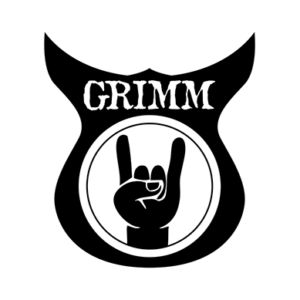
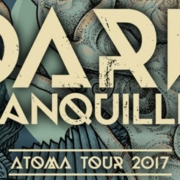
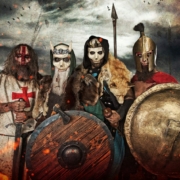

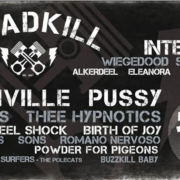
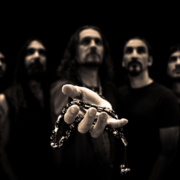
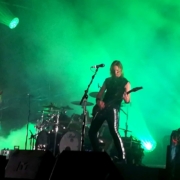




Trackbacks & Pingbacks
[…] the next chapter of their journey and from the singles and chat we had with vocalist Levy (read here), it has become clear that means breaking the mold of how they were doing things before. And here […]
Leave a Reply
Want to join the discussion?Feel free to contribute!